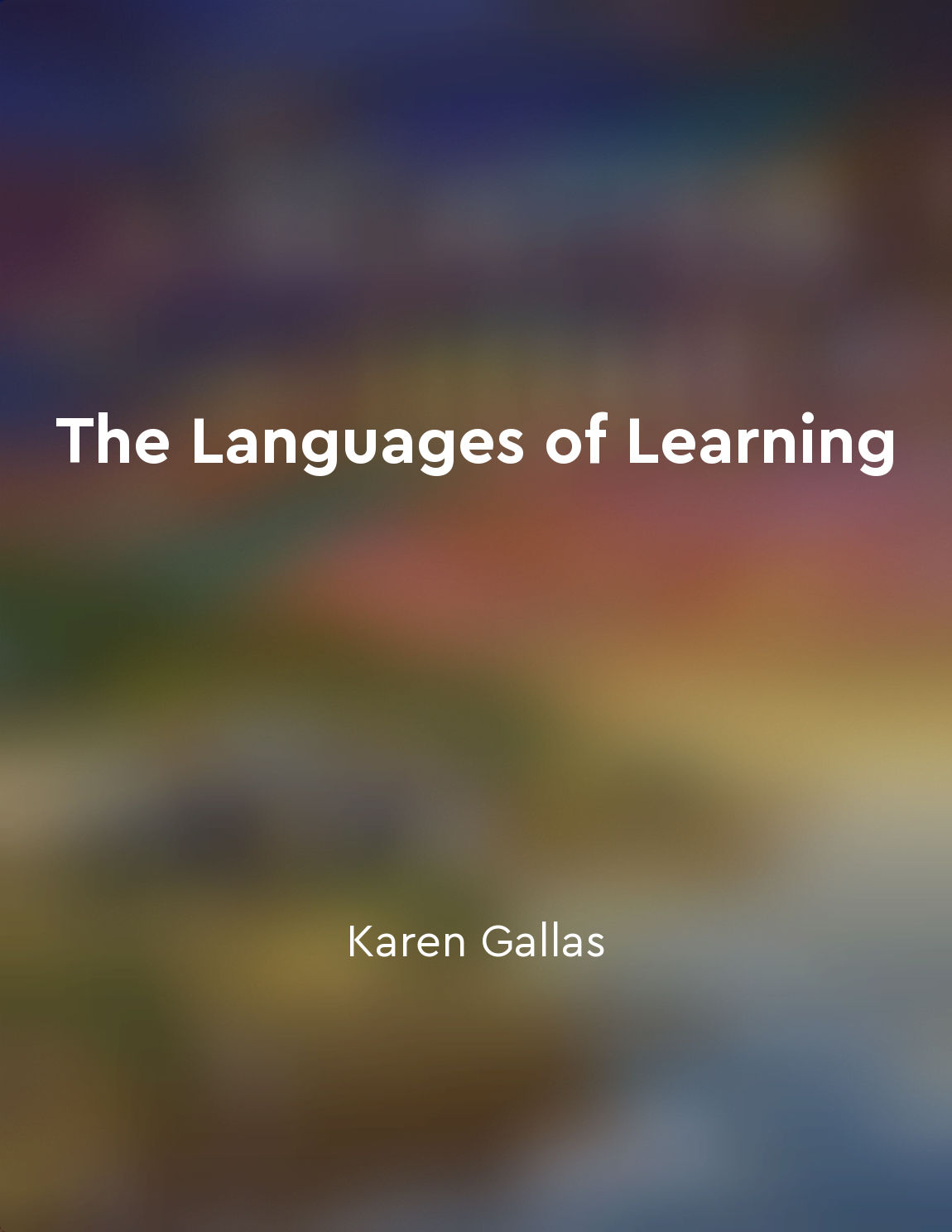Children use language to make sense of their world from "summary" of The Languages of Learning by Karen Gallas
Children's use of language is not just about communication, it is also a tool for them to understand and navigate the world around them. Through their interactions with others and their environment, children develop their language skills as a means of making sense of their experiences. As they encounter new people, objects, and situations, they use language to label and categorize these stimuli, helping them to establish connections and form associations.
Language serves as a medium through which children can organize and structure their thoughts, enabling them to process information and construct meaning. By expressing their thoughts and feelings in words, children are able to reflect on their own experiences and make sense of the world from their own unique perspective. In this way, language becomes a powerful tool for children to explore, interpret, and make sense of the complexities of their environment.
Through language, children are able to not only describe the world around them but also to inquire, question, and seek clarification. By engaging in conversations with others, children are able to expand their understanding of the world, as well as their repertoire of language skills. Through these interactions, children develop their ability to think critically, problem-solve, and make connections between different ideas and concepts.
Language also plays a crucial role in children's social and emotional development. By expressing their thoughts and feelings through words, children are able to communicate with others, establish relationships, and develop a sense of empathy and understanding. Language enables children to form connections with others, share experiences, and collaborate on tasks, fostering a sense of community and belonging.Children's use of language is a dynamic and multifaceted process that goes beyond mere communication. Through language, children are able to explore, interpret, and make sense of their world, as well as connect with others and develop social and emotional skills. Language is not just a tool for expression; it is a means for children to navigate the complexities of their environment and construct their own understanding of the world around them.

Open in app
The road to your goals is in your pocket! Download the Oter App to continue reading your Microbooks from anywhere, anytime.


